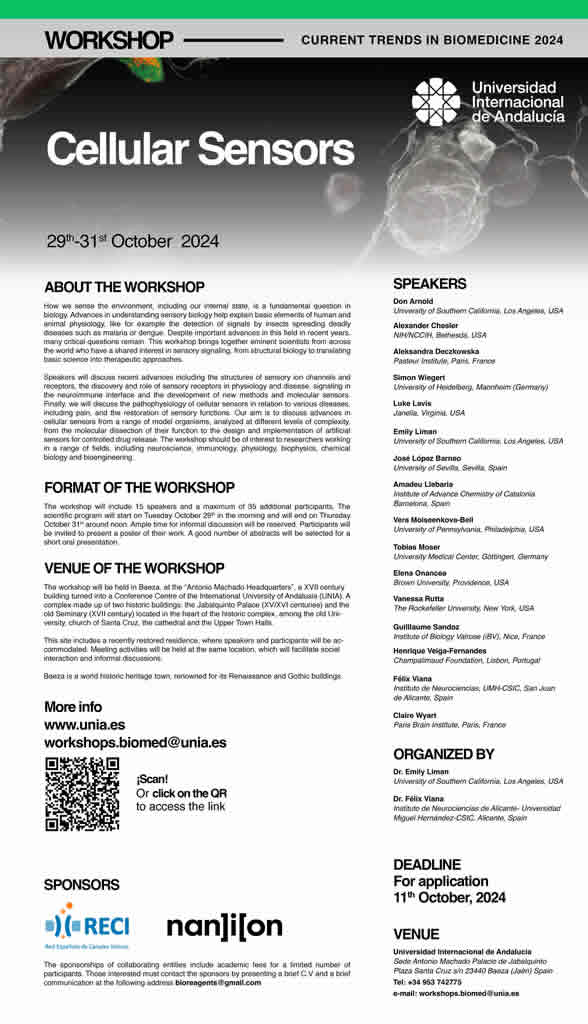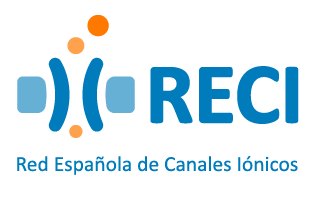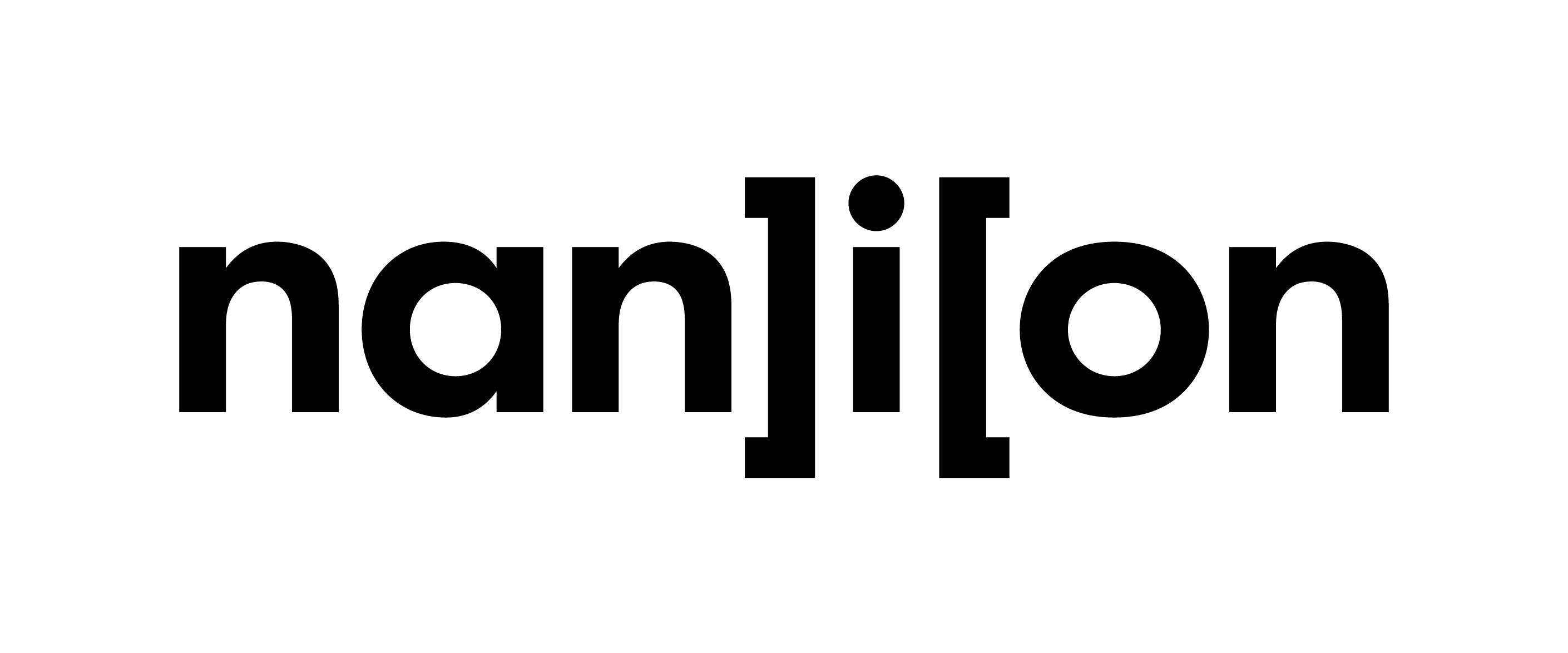
Workshop: Cellullar Sensors
Dr. Emily Liman: University of Southern California, Los Angeles, USA
Dr. Félix Viana: Instituto de Neurociencias de Alicante- Universidad Miguel Hernández-CSIC, Alicante, Spain
-
finalizado
-
Desde: 29 Octubre 2024
-
Hasta: 31 Octubre 2024
-
Presencial
-
Sede Antonio Machado de Baeza
-
Investigadora
-
Inglés
-
20 Horas
-
400 euros
-
35
How we sense the environment, including our internal state, is a fundamental question in Biology. It is crucial for understanding human physiology but also helps explain the detection of signals by insects spreading deadly diseases like malaria or dengue. Despite important advances in this field in the last years, many critical questions remain. This workshop brings together eminent scientists from across the world who have a shared interest in sensory signaling, from structural biology to translating basic science into therapeutic approaches. Speakers will discuss recent advances including the structures of sensory ion channels and receptors, the discovery and role of sensory receptors in physiology and disease, signaling in the neuroimmune interface and the development of new methods and molecular sensors. Finally, we will discuss the pathophysiology of cellular sensors in relation to various diseases, including pain, and the restoration of sensory functions. Our aim is to discuss advances in cellular sensors from a range of model organisms, analyzed at different levels of complexity, from the molecular dissection of their function to the design and implementation of artificial sensors for controlled drug release. The workshop should be attractive to researchers working in a range of fields, including neuroscience, immunology, physiology, biophysics, chemical biology and bioengineering.

-
Plan de estudios
Monday, 28th October 2024
18:00 Registration
20:30 Get together cocktail Cafeteria of the Sede Antonio Machado UNIA. Palacio de Jabalquinto
Tuesday, 29th October 2024
8:15 Breakfast at cafeteria UNIA
8:45 Welcome address by the organizers: E. Liman and F. Viana
Session I: Structure and function of nociceptive channels
Chair: Félix Viana
9:00 Vera Moiseenkova-Bell, University of Pennsylvania, Philadelphia, USA
Structural Pharmacology of TRPV Channels
9:30 Guillaume Sandoz, Institute of Biology Valrose (iBV), Nice, France
Cellular sensing with two-pore domain potassium channels
10:00 Ute Hellmich, University of Jena, Jena, Germany
TRP channels on a leash - structural dynamics and regulation through their intrinsically disordered regions
10:30–11:30 Coffee break and poster session
Session II: Chemosensation
Chair: Claire Wyart
11:30 Emily Liman, University of Southern California, Los Angeles, USA
pH monitoring in taste cells by OTOP proton channels
12:00 Elena Onancea, Brown University, Providence, USA
Cellular sensors for melanosomal pH
12:30 Vanessa Ruta, The Rockefeller University, New York, USA
Sensing scents: structural insights into odor detection
13:00 José López Barneo, University of Sevilla, Sevilla, Spain
Mitochondrial acute oxygen sensing and signaling
13:30–15:00 Lunch at Hotel Puerta de la LunaSession III: Mechanobiology
Chair: Vera Moiseenkova-Bell
15:00 Alexander Chesler, NIH/NCCIH, Bethesda, USA
Molecules and cells for touch and pain
15:30 Sergio Sarrio, Institute of Neurosciences UMH-CSIC, Alicante, Spain
PIEZO1 and PIEZO2 Blade domains are differently required for channel localization and functions
16:00 Jorge Fernández-Trillo, Institute of Neurosciences UMH-CSIC, Alicante, Spain
Mechanical sensitivity in MRGPRD nociceptors is mediated by Piezo2
16:15 Maria Giustina Rotordam, Nanion Technologies, Munich, Germany
Exploring the role of Piezo1 in the function and development of red blood cells using high-throughput patch clamp
16:30 Houcheng Wang, Imperial College London, United Kingdom
Modulation of calcium handling by β2AR signalling and PDE4s activity under mechanical stretch
16:45–17:15 Coffee break at cafeteria UNIA
Session IV: Sensory Circuits
Chair: Luke Lavis
17:15 Tobias Moser, University Medical Center, Göttingen, Germany
Synaptic processing of sensory information
17:45 Claire Wyart Paris Brain Institute, Paris, France
Cerebrospinal fluid-contacting neurons: multimodal cells with diverse roles in the CNS20:30 Dinner at Hotel Puerta de la Luna
Wednesday, 30th October 2024
8:15 Breakfast at cafeteria UNIA
Session V: Making and Implementing Novel Cellular Sensors
Chair: Elena Onancea
9:00 Luke Lavis, Janelia, Virginia, USA
Building brighter fluorophores for advanced imaging and sensing
9:30 Amadeu Llebaria, IQAC, Barcelona, Spain
Photopharmacology: using light for a precise control of drug action
10:00 Simon Wiegert, University of Heidelberg, Mannheim, Germany
All lights on the brain: tools for optical investigations of neuronal circuits
10:30 Don Arnold, University of Southern California, Los Angeles, USA
ATLAS: A rationally designed anterograde transsynaptic tracer
11:00 Maria Teresa Alonso, University of Valladolid, Valladolid, Spain
Direct measurements of luminal Ca2+ in endo-lysosomes with a novel Ca2+ sensor based on GFP-aequorin
11:30–12:15 Coffee and poster viewing
Session VI: The neuroimmune interface
Chair: Emily Liman
12:15 Henrique Veiga-Fernandes, Champalimaud Foundation, Lisbon, Portugal
Neuroimmune ecosystems
12:45 Aleksandra Deczkowska, Pasteur Institute, Paris, France
Immune-brain communication at the choroid plexus13:15–14:45 . Lunch at Hotel Puerta de la Luna
Session VII: Ion channels and thermosensation
Chair: Emily Liman
14:45 Peter Zygmunt, Lund University, Malmö, Sweden
Intrinsic thermo- and mechanosensitive properties of human TRPA1
15:15 Jan Siemens, Heidelberg University, Heidelberg, Germany
A heat acclimation-induced neuronal pacemaker that drives heat tolerance
15:45 Marion Bied, Institute of Biology Valrose (iBV), Nice, France
UV-A Activation of Two Pore Domain Potassium Channels16:00 Laura Primicheru, King’s College, London, United Kingdom
The analgesic mechanism of Palmitoylethanolamide
16:30 Guided Tour of Baeza (Sponsored by NANION)20:30 Dinner at Hotel Puerta de la Luna
Thursday 31st October 2024
8:15 Breakfast at cafeteria UNIA
Session VII: Cellular Sensors in Disease States
Chair: Tobias Moser
9:00 Félix Viana, Institute of Neurosciences UMH-CSIC, Alicante, Spain Pathophysiology of mammalian thermosensitive TRP channels
9:30 Eva María Villalba-Riquelme, IDIBE, UMH, Elche, Alicante, Spain Nociceptive channels in chemotherapy-induced peripheral neuropathy: insights from paclitaxel and oxaliplatin in vitro preclinical models
9:45 Angela Lamberti, IDIBE, UMH, Elche, Alicante, Spain Thermo TRP ion channels as a key molecular and functional landmark for neuropathic pain transduction in subsets of somatosensory neurons
10:00 Charlotte Guhl, University of Jena, Jena, Germany
Endolysosomal channels in health and disease: from molecules to mechanisms- 15 Concluding Remarks by the organizers: E. Liman and F. Viana
11:30 Bus Departure to Madrid Airport
-
Dr. Emily Liman: University of Southern California, Los Angeles, USA
Dr. Félix Viana: Instituto de Neurociencias de Alicante- Universidad Miguel Hernández-CSIC, Alicante, Spain
Don Arnold, University of Southern California, Los Angeles, USA
Alexander Chesler, NIH/NCCIH, Bethesda, USA
Aleksandra Deczkowska, Pasteur Institute, Paris, France
Simon Wiegert, University of Heidelberg, Mannheim, Germany
Luke Lavis, Janelia, Virginia, USA
Emily Liman, University of Southern California, Los Angeles, USA
José López Barneo, University of Sevilla, Sevilla, Spain
Amadeu Llebaria, Institute of Advance Chemistry of Catalonia, Barcelona, Spain
Vera Moiseenkova-Bell, University of Pennsylvania, Philadelphia, USA
Tobias Moser, University Medical Center, Göttingen, Germany
Elena Onancea, Brown University, Providence, USA
Vanessa Ruta, The Rockefeller University, New York, USA
Guilllaume Sandoz, Institute of Biology Valrose (iBV), Nice, France
Henrique Veiga-Fernandes, Champalimaud Foundation, Lisbon, Portugal
Félix Viana, Instituto de Neurociencias, UMH-CSIC, San Juan de Alicante, Spain
Claire Wyart, Paris Brain Institute, Paris, France
The aim of the workshop is to provide an integrated view of our current understanding of different cellular sensors and their biological relevance. The workshop should be attractive to researchers and students working in different fields (chemical biology, biophysics, bioengineering, immunology, neuroscience) and using different model systems. "See application guidelines"
FORMATE OF THE WORKSHOP:
The workshop will bring together 15 speakers and a maximum of 35 participants. The scientific programme will start on Tuesday 29th October in the morning and will end on Thursday 31th October in the morning. Ample time for informal discussion will be reserved. Participants will be invited to present a poster. Some abstracts will be selected for a short presentation.
VENUE OF THE WORKSHOP:
The workshop will be held in Baeza, at the “Antonio Machado Headquarters”, a XVII century building turned into a Conference Centre of the International University of Andalusia (UNIA). A complex made up of two historic buildings: the Jabalquinto Palace (XV/XVI centuries) and the old Seminary (XVII century) located in the heart of the historic complex, among the old University, church of Santa Cruz, the cathedral and the Upper Town Halls.
This site includes a recently restored residence, where speakers and participants will be accommodated. This same space is where the meetings will be held, which facilitates social interaction and informal discussions.
Baeza is a world historic heritage town, renowned for its Renaissance and Gothic buildings.
ACCOMMODATION:
We recommend all participants to stay in the University Residence, which is located in the same space where the Meetings will take place, to facilitate social interaction and informal discussions.
The accommodation in the University Residence is in shared double rooms, as there are not single rooms: €20/day. To make the reservation and the corresponding payment you must be previously registered for the workshop and then contact:
WORKSHOP REGISTRATION:
A) Applicants must complete an application form and submit it, along with:
- A brief C.V.
- A summary of the current research work of the candidate.
In case of presenting a poster, a summary of the poster of no more than one page, with the title, authorship, research center/institution/university, address and a summary of the communication.
See section "presentation of panels and posters”.
SEE LINK TO:
Application form (odt)
Application form (doc)*:
En cumplimiento del Reglamento General de Protección de Datos (Reglamento (UE) 2016/679), se le informa que los datos personales que se puedan recopilar se incorporarán y procesarán en algunos de los archivos de la Universidad Internacional de Andalucía (UNIA); los datos pueden divulgarse según lo previsto por la ley.
La autoridad responsable de los datos es: UNIA: Secretaría General (Secretario General). C / Américo Vespucio nº 2, Isla de la Cartuja. 41092 - SEVILLA, ESPAÑA.
Puede ejercer sus derechos de acceso, rectificación, eliminación y oposición contactando por escrito con la dirección mencionada anteriormente, a la atención del Delegado de Protección de Datos, o enviando un correo electrónico a
B) Send the completed Application Form (doc/odt) and the attached documents as separate text files and in a single email message, to
Selected applicants (with or without poster) will be notified directly. From that moment on, they must pay the corresponding registration fees*.
WORKSHOP FEES 2024:
Registration: 400,00 € (breakfast, lunch, coffe-breaks and dinner included)
Payment method: bank transfer to ‘La Caixa’
IBAN (international bank account number): ES78 21009166752200074348
SWIFT (BIC): CAIXESBBXXX
Registration fees deadline 11 October 2024
Selected applicants must indicate their full name and code number (it will appear in the webpage) in the bank transfer. After completing your payment by bank transfer, a proof of payment must be sent to:
The bank charges generated by the bank transfer will be paid by the applicants/attendees.
WORKSHOP panels/posters guidelines:
The scheduled dates for the presentation of panels/posters are:
A. Deadline to present the complete panels in digital format 11 OCTOBER 2024.
Presentation of the proposal: through the registration form in the Worhshop.
Shipping address for panels/posters:
o For the oral presentation of posters it is essential to have formalized registration and payment of the Workshop.
o The co-director of the Workshop will indicate and assign the session in which to present the work.
o The organization will certify the effective presentation of each panel/poster during the Workshop.
o Each author individually or collectively may present a maximum of 2 panels.
o Researchers may display their panel in the campus facilities. To do this, they must bring their work printed in DIN A0 vertical format (84.1 x 118.9 cm) and arrange it in the provided fastening systems.
Panel/poster contents:
• Title: Arial bold 14 points.
• Subtitle (if applicable).
• Authorship (individual or collective).
• Keywords: maximum 4.
• Presentation / Summary of content: 120 words.
• Methodology: 100 words.
• Description and contents: through text and graphics.
• Conclusions: maximum 100 words
• Sources and essential bibliography.
• Format: to transfer digitally DIN A4; PDF. Type: Arial. Body: minimum 9 and maximum 12 points.
The sponsorships of collaborating entities include academic fees for a limited number of participants. Those interested must contact the sponsors by presenting a brief C.V and a brief communication at the following address
Matrícula y becas
Situación actual:
-
finalizado
Conoce nuestro propio programa de becas y consulta en las bases de la convocatoria los casos donde la beca contempla exención de precios o una ayuda económica.
Los estudios de formación continua son enseñanzas de ampliación, especialización, perfeccionamiento y/o actualización de conocimientos destinados a cubrir áreas temáticas concretas de interés, con unos objetivos bien definidos, que permiten responder de una forma ágil y eficaz a las distintas demandas de conocimiento de la sociedad.
No están sujetos a requisitos de acceso.
Programa de becas y ayudas de la Universidad Internacional de Andalucía.
La Universidad Internacional de Andalucía, como complemento a las convocatorias de la Administración General del Estado y de la Comunidad Autónoma, en el ejercicio de sus competencias y de acuerdo con su disponibilidad presupuestaria, establecerá para cada curso académico un programa de becas y ayudas al estudio.
Las modalidades y cuantías de las becas y ayudas, las condiciones académicas y económicas que hayan de reunir los candidatos, el procedimiento de gestión, así como los supuestos de incompatibilidad, revocación y reintegro y cuantos requisitos, condiciones socio-económicas u otros factores sean precisos para el acceso a las citadas becas y ayudas se regularán por su propia normativa que, en todo caso, debe asegurar los principios de igualdad y equidad, atendiendo a la promoción del rendimiento académico.
Para cualquier incidencia técnica durante su automatrícula, puede contactar con la dirección de correo electrónico:
Enlace al Manual de ayuda a la automatrícula
Los precios públicos a satisfacer en la matrícula serán determinados en la convocatoria de la actividad ofertada.
La eficacia de la matrícula formalizada y de los actos administrativos que de ella pudieran derivarse quedará demorada hasta tanto no se produzca el pago de la totalidad de los precios públicos establecidos. El impago de la misma implicará el desistimiento de la solicitud de matrícula.
La Universidad Internacional de Andalucía acreditará los logros académicos obtenidos por sus estudiantes mediante la emisión del correspondiente certificado de asistencia o diploma de aprovechamiento, siempre que el estudiante haya asistido al 80% de las clases. El certificado de asistencia se expedirá en aquellos casos en que el programa no contemple ninguna evaluación o el/la alumno/a no la haya superado. Si el programa cuenta con evaluación y el/la alumno/a la supera, recibirá un diploma de aprovechamiento con la calificación obtenida. Estos documentos se emitirán una vez cumpla el alumnado con los requisitos establecidos en la convocatoria para su expedición.

Workshop: Plants under environmental stress:overcoming current climate change

X Jornadas de formación en coagulopatías



